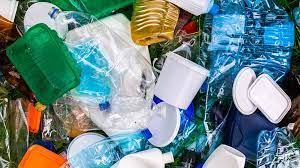Polypropylene (PP) is among the extensively utilized plastics around the globe, found in everything from food containers and automotive parts to medical devices. As environmental concerns increase, the recycling of PP is becoming more important. Here’s a complete look at the information you should be aware of concerning PP recycling.
What is Polypropylene?
Polypropylene is a thermoplastic polymer known for its toughness as well as its flexibility and resistance to heat and chemicals. It’s commonly used due to its cost-effectiveness and versatility. You’ll see PP in items like yogurt containers, straws, and even some types of clothing.
Why Recycle PP?
PP recycle is crucial for a number of reasons. It helps to reduce the volume of waste that end up in landfills. Plastics could take hundreds of years to decay. Additionally, recycling PP helps conserve natural resources by decreasing the need for raw materials. Thirdly, it assists in reducing the greenhouse gas emissions that are associated with the manufacturing and use of plastic that is new.
How is PP Recycled?
The process of recycling PP typically involves a number of key steps:
Collection and Sorting: PP waste is collected from a variety of sources, including homes, businesses and recycling centres. Then, it is separated from other types of plastics and other contaminants.
Cleaning and shredding: The sorted PP will be cleaned in order to remove impurities such as food residue and labels. After cleaning, the plastic is broken into tiny flakes or pellets.
Reprocessing: The PP flake is melted, then processed to create new products. This could involve extrusion to form new PP pellets or injection molding to produce specific items.
Quality Control: Recycled PP undergoes quality checks to ensure that it is compliant with the standards of the industry. This is essential to maintain the quality and integrity that the material is recycled.
Challenges in PP Recycling
Despite its many benefits, PP recycling faces several problems. The most significant problem is the lack of widespread recycling infrastructure that can make it challenging to process and collect PP efficiently. Additionally, PP can be contaminated with other materials, making the recycling process more complex. Its quality when recycled PP is also subject to variation, which can affect the quality of new products.
The Future of PP Recycling
The future of PP recycling is looking promising as technology improves. Innovations in sorting and processing techniques are making it easier to recycle PP more efficiently. Additionally, there is an increasing focus on developing closed-loop recycling systems where recycled PP can be utilized to make new products of similar quality.
In the end, even though PP recycling presents some issues, it is an essential element of sustainable waste management. As technology and recycling practices continue to improve, the effectiveness and efficiency of PP recycling is expected to grow, contributing to the creation of a more sustainable environment.



